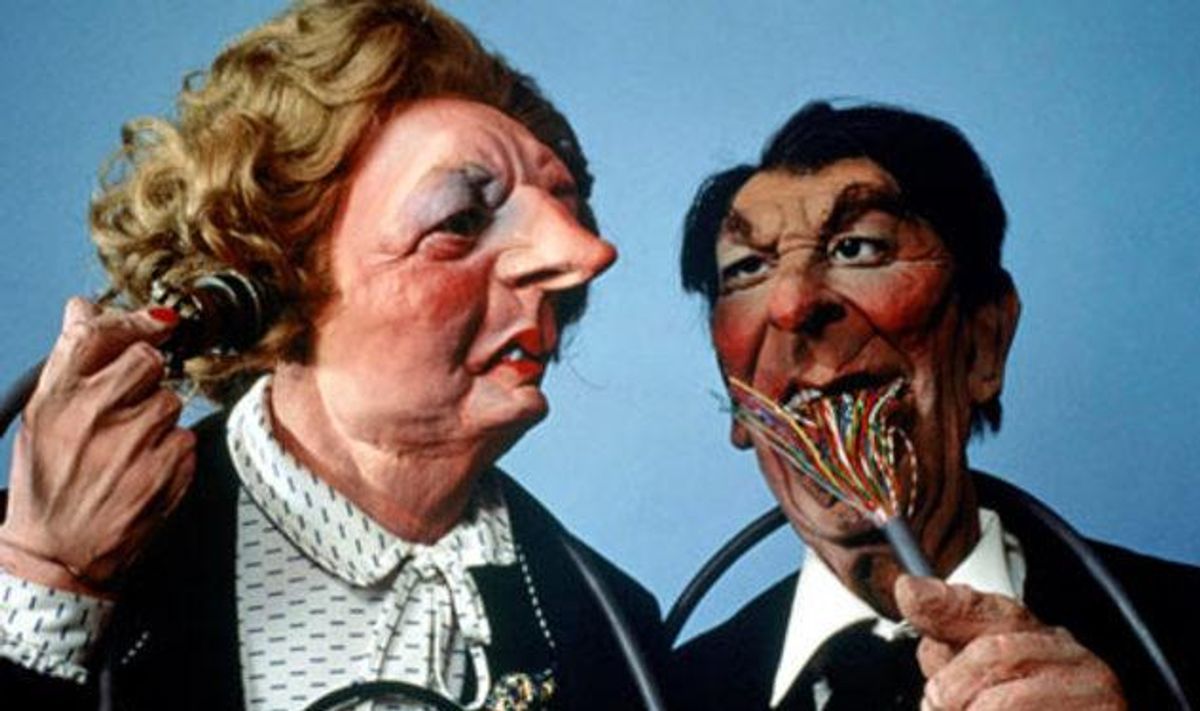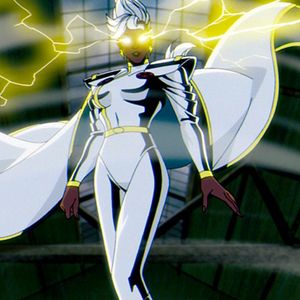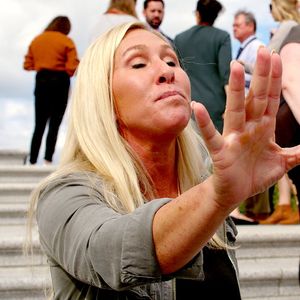(Photograph: Nils Jorgensen / Rex Features)
Baroness Margaret Thatcher, who earned the wrath of gays--among many other constituencies--when her Conservative government introduced the notorious Section 28, which banned "the promotion of homosexuality" in schools and other educational facilities, has died at the age of 87.
Famously nicknamed the "Iron Lady" by the Soviet press, the former British prime minister transformed the UK during her 11 years in office, from 1979 to 1990, by privatizing formerly nationalized industries, and taking on the unions, often with devastating results for blue-collar communities dependent on coal mining and steel for work (a theme the movie and play Billy Elliot touched on).
She came to power in a period distinguished by industrial unrest and growing unemployment, when many people in Britain and the world saw the UK as a second rate power in steep decline. Vowing to make Britain great again, Thatcher was deeply divisive from day one, and won her second term largely on the back of a successful war with Argentina over possession of the Falkland Islands.
A grocer's daughter, Thatcher was elected leader of Britain's Conservative party in 1975, two years after saying it was unlikely Britain would ever see a female prime minister in her lifetime. She proved herself wrong in 1979, when she was swept to office in a landslide. Despite her subsequent support for Section 28, Thatcher was one of the few Conservative politicians to support the legalization of homosexuality in the 1960s, and her party reacted more forcefully to HIV and AIDS than the Reagan administration in the U.S, though often by exaggerating the impact of the disease on straight society at the expense of gay men. In a statement today, British gay activist, Peter Tatchell, said, "During her rule, arrests and convictions for consenting same-sex behaviour rocketed, as did queer bashing violence and murder. Gay men were widely demonised and scapegoated for the AIDS pandemic and Thatcher did nothing to challenge this vilification."
In 1984 Thatcher narrowly escaped death after the IRA bombed a hotel in Brighton that was being used for an annual party conference (others were not so lucky - five people were killed, and 31 injured). The following year she signed the Anglo-Irish agreement that gave a role to the Dublin government in Northern Ireland affairs, and helped smooth the path to the peace that would come to fruition under Tony Blair.
Her opposition to terrorism was notorious, but also somewhat subjective - she dismissed Nelson Mandela as a terrorist, but in later life offered her support to the Chilean dictator Augusto Pinochet, when he was detained in the U.K. for his human rights abuses.
Thatcher was eventually forced by her own party to stand down after a bitter internal dispute over Britain's attitude toward the European Union that has dogged the Conservative party ever since. Thatcher's particularly rocky relationship with France was epitomized by President Francois Mitterand, who said of her: "She has the mouth of Marilyn (Monroe) and the look of Caligula."
Her relationship with President Reagan was famously satirized by British puppet show, Spitting Image, which showed the two leaders in bed together.
More recently she was embodied by Meryl Streep in the movie, The Iron Lady, winning Streep an Academy Award.




















































































